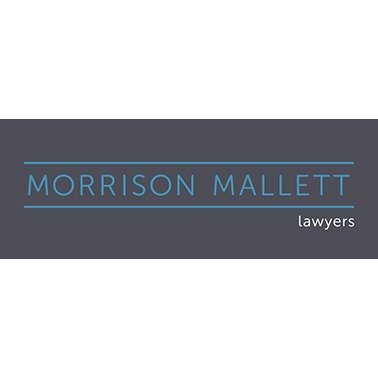Best Art & Cultural Property Law Lawyers in Wellington
Share your needs with us, get contacted by law firms.
Free. Takes 2 min.
List of the best lawyers in Wellington, New Zealand
About Art & Cultural Property Law in Wellington, New Zealand
Art & Cultural Property Law in Wellington, New Zealand, encompasses the protection and management of artistic works and cultural heritage. This legal field aims to safeguard the rights of creators, prevent the illegal trafficking of cultural artifacts, and ensure that cultural property is preserved for future generations. Due to Wellington's vibrant cultural scene and rich Maori heritage, the legal framework plays an essential role in balancing the rights of artists, collectors, and indigenous communities.
Why You May Need a Lawyer
Individuals and organizations may require legal assistance in several scenarios related to Art & Cultural Property Law. Such situations include buying or selling artwork, resolving ownership disputes, protecting intellectual property rights, dealing with stolen art, or ensuring compliance with cultural heritage regulations. Legal advice may also be crucial when lending or exporting art and in handling bequests or gifts involving cultural artifacts.
Local Laws Overview
In Wellington and broadly across New Zealand, several key legislations regulate Art & Cultural Property Law. The Cultural Property (Protection in Armed Conflict) Act 2012, the Protected Objects Act 1975, and the Heritage New Zealand Pouhere Taonga Act 2014 are significant legislations. These laws address the protection and repatriation of cultural objects, ensure the listing and maintenance of historic places, and recognize both tangible and intangible cultural heritage. These regulations often require consultation and collaboration with Maori communities and other stakeholders when dealing with Maori artifacts and heritage.
Frequently Asked Questions
What is considered cultural property under New Zealand law?
Cultural property includes objects of artistic, historical, or religious significance, such as paintings, sculptures, manuscripts, and artifacts. It also encompasses Maori taonga, or treasures, which hold cultural, spiritual, and historical importance.
Can an artwork's provenance impact its legality?
Yes, provenance is crucial in determining the legality of an artwork's ownership, especially if the artwork may have been unlawfully exported or stolen. Establishing clear provenance is essential for legal trade and acquisition.
What protections exist for Maori cultural heritage?
The Treaty of Waitangi and relevant legislation like the Heritage New Zealand Pouhere Taonga Act provide frameworks for recognizing and protecting Maori cultural heritage, emphasizing consultation and consent.
Are there restrictions on exporting art from New Zealand?
Yes, exporting certain cultural items requires a permit under the Protected Objects Act 1975. This law aims to prevent the loss of important cultural heritage from New Zealand.
What should I do if I suspect an artwork is stolen?
It is advisable to contact the police and discuss the matter with a lawyer experienced in art law to understand your rights and responsibilities.
How do I protect my intellectual property as an artist?
Artists can protect their work through copyright, trademarks, and design rights. Registering these rights can provide legal protection and remedies against unauthorized use.
What role does Heritage New Zealand play?
Heritage New Zealand Pouhere Taonga is the agency responsible for promoting the identification, protection, and conservation of historical and cultural heritage, including historic sites and structures.
Can cultural property be repatriated?
Yes, under certain circumstances, cultural property can be repatriated, especially if its export violated legal or ethical norms. New Zealand has engaged in numerous repatriation efforts, particularly concerning Maori taonga.
What legal frameworks address art forgery?
Forgery and its implications are addressed under both criminal law and civil remedies. A lawyer can help determine appropriate actions if forgery is suspected.
What are my rights if my artwork is damaged during transportation?
Rights depend on the terms of the transportation agreement and insurance coverage. Review contracts carefully and consult a lawyer to understand the extent of legal recourse.
Additional Resources
For further assistance in Art & Cultural Property Law, consider reaching out to organizations like Heritage New Zealand Pouhere Taonga and the New Zealand Museum Association. Governmental websites, such as the Ministry for Culture and Heritage, can also offer guidance.
Next Steps
If you need legal assistance, consider contacting a lawyer specializing in Art & Cultural Property Law. They can provide tailored advice specific to your situation, help navigate the complex legal landscape, and protect your rights and interests effectively.
Lawzana helps you find the best lawyers and law firms in Wellington through a curated and pre-screened list of qualified legal professionals. Our platform offers rankings and detailed profiles of attorneys and law firms, allowing you to compare based on practice areas, including Art & Cultural Property Law, experience, and client feedback.
Each profile includes a description of the firm's areas of practice, client reviews, team members and partners, year of establishment, spoken languages, office locations, contact information, social media presence, and any published articles or resources. Most firms on our platform speak English and are experienced in both local and international legal matters.
Get a quote from top-rated law firms in Wellington, New Zealand — quickly, securely, and without unnecessary hassle.
Disclaimer:
The information provided on this page is for general informational purposes only and does not constitute legal advice. While we strive to ensure the accuracy and relevance of the content, legal information may change over time, and interpretations of the law can vary. You should always consult with a qualified legal professional for advice specific to your situation.
We disclaim all liability for actions taken or not taken based on the content of this page. If you believe any information is incorrect or outdated, please contact us, and we will review and update it where appropriate.









